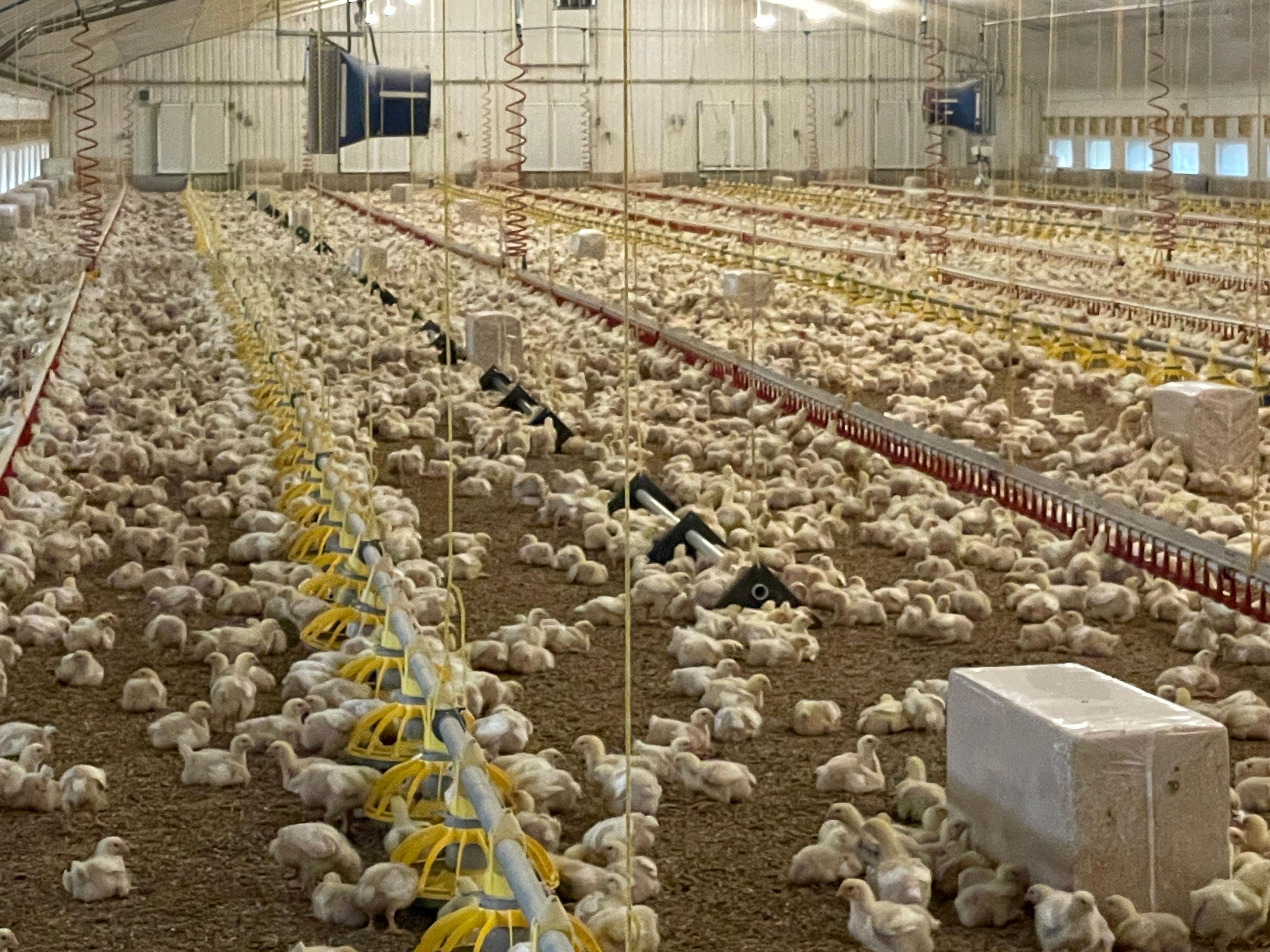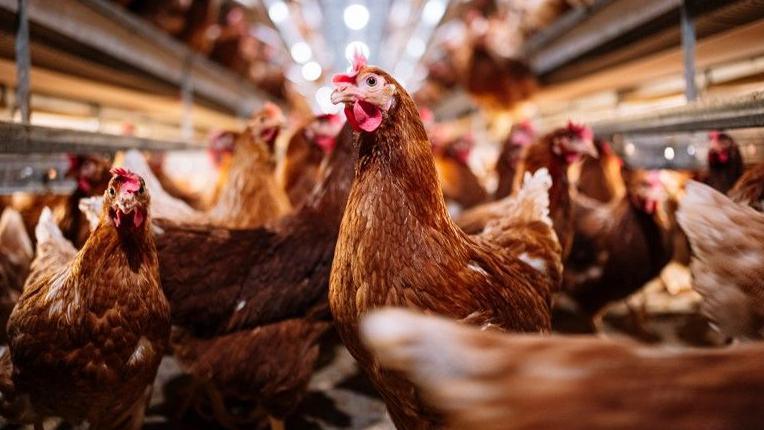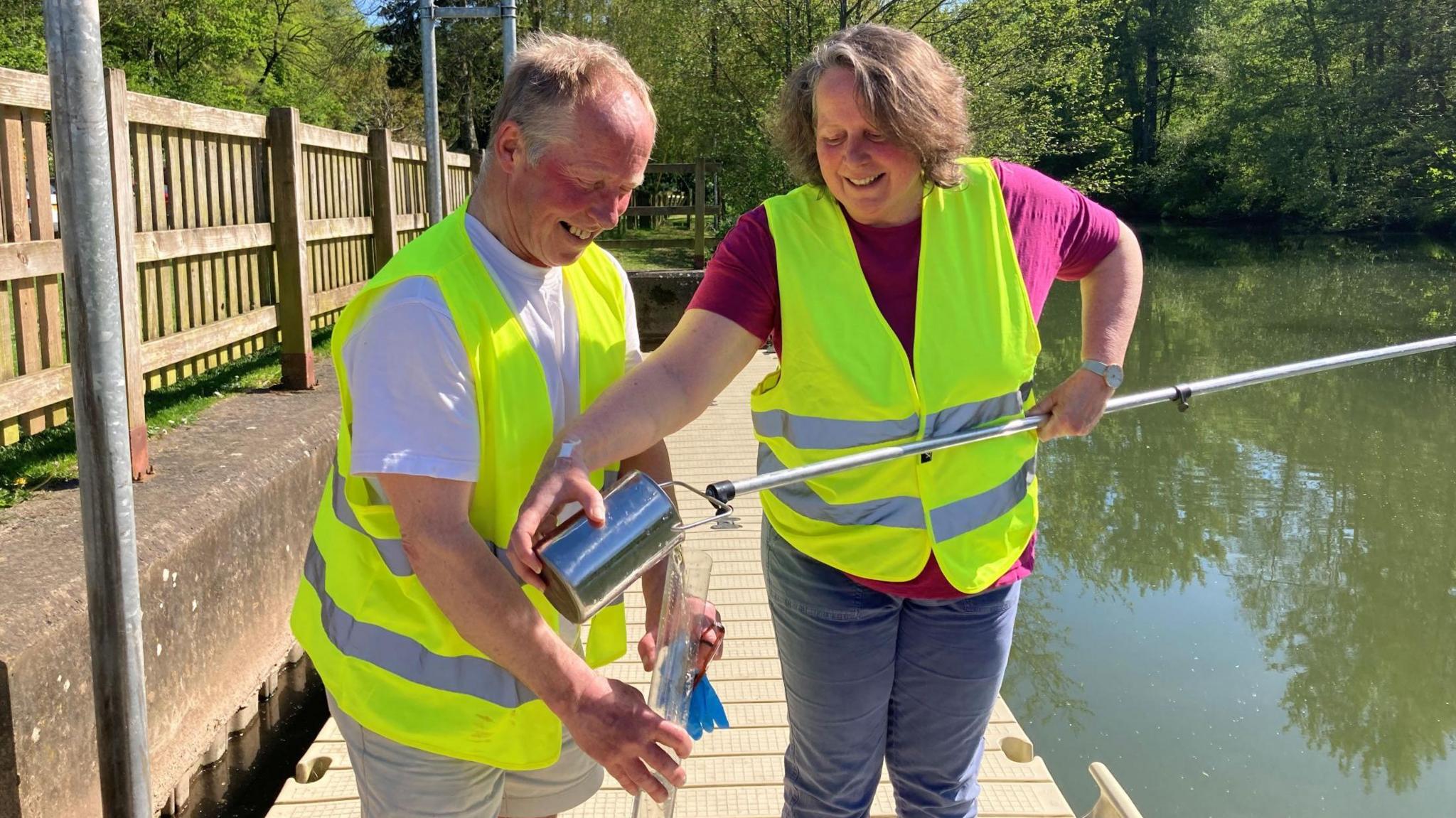New concerns over impact of chicken farms on river

A council meeting heard the River Wye was being turned into an "open sewer"
- Published
Councillors in Gloucestershire have raised fears over river pollution after a decision to approve new chicken farms upstream in Shropshire.
A meeting of Forest of Dean District councillors on 12 December heard agricultural pollution was turning the rivers Severn and Wye into "open sewers".
The district council agreed to write to Shropshire Council, which approved a proposal to house up to 230,000 birds, to ask it to consider downstream impacts when determining future planning applications. The decision is being challenged in the High Court in a judicial review.
Shropshire Council did not respond to a request for comment.

The proposed farm would raise up to 230,000 chickens at a time
Chicken manure contains high levels of phosphorus and nitrogen, making it a good fertiliser for crops, the Local Democracy Reporting Service said.
However, the nutrients can lead to excessive growth of algae in waterways, starving the river of oxygen and killing fish.
In May, Shropshire Council gave permission for LJ Cooke & Son to build four sheds at Felton Butler, north-west of Shrewsbury.
According to a motion put forward by Forest of Dean District Green Party councillor Andrew McDermid, more than 50 million chickens were already being farmed at any one time in the Wye and Severn catchment areas.
'Rivers in a mess'
McDermid said it was "inevitable" the Forest of Dean would be affected by river degradation due to its location downstream between both rivers and next to their outlets into the Severn Estuary.
"These rivers are in a mess," he said.
"It's nearly an open sewer because of agricultural run-off mainly."
Green Party councillor Sid Phelps, who seconded the motion, said the issue was a "not a simple nut to crack".
He told the council of his frustration over the lack of progress achieved by the Wye Catchment Nutrient Management Board, a committee made up of councillors from Powys, Herefordshire, Monmouthshire and the Forest of Dean.
Councillors agreed to write to the leader of Shropshire Council to express their "heartfelt" concerns.
Get in touch
Tell us which stories we should cover in Gloucestershire
Follow BBC Gloucestershire on Facebook, external, X, external and Instagram, external. Send your story ideas to us on email or via WhatsApp on 0800 313 4630.
- Published3 October 2024

- Published15 May 2024

- Published13 May 2024
